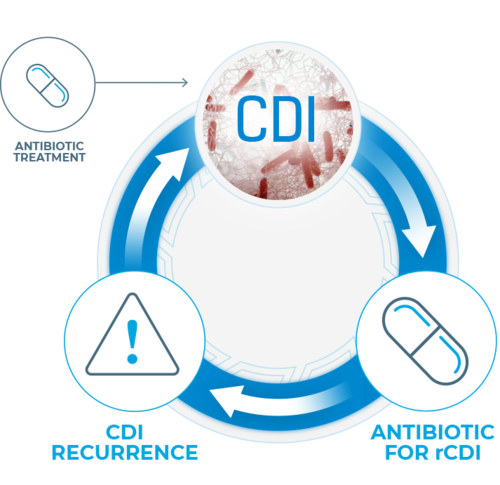
Up to 35% of patients will experience recurrence within 8 weeks after initial C. diff infection (CDI) diagnosis.1,2 A predominant risk factor for recurrence, antibiotic use has been shown to disrupt the ecology of the human microbiome, does not address the underlying dysbiosis, and is associated with increased risk of deadly infections such as recurrent C. diff.3-6
Longer exposure to multiple antibiotics and treatment with multiple antibiotics may increase the risk.7
Disruption of microbiota increases the risk of C. diff infection by providing a niche for the infection to flourish. Should the intestinal microbiota be disrupted by antibiotics, the effects may be long-lasting and the risk of C. diff infection may increase during continued therapy. Longer exposure to multiple antibiotics and treatment with multiple antibiotics may increase the risk.7-11
Thus starts a cycle of C. diff infection and reinfection—impeding microbiome recovery, exacerbating morbidity, and creating a substantial economic burden.1.7-14

Restoring a healthy gut microbiome is increasingly accepted as a promising treatment option for recurrent C. diff infection.9

